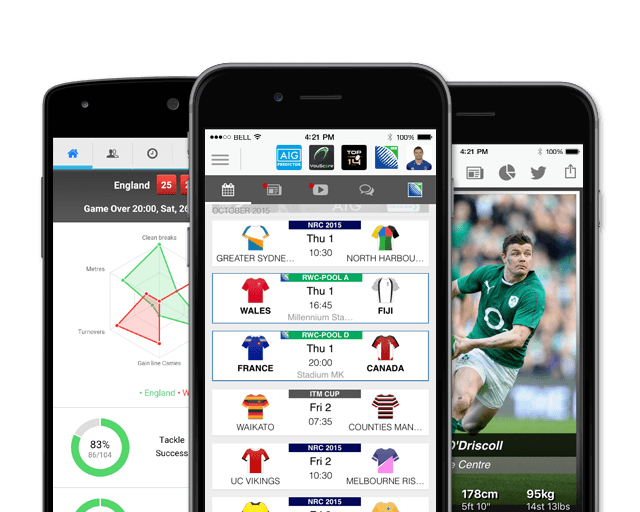ANALYSE THAT - THE RUGBY STATTOS
- 4446

In 2003, Clive Woodward set about winning the Rugby World Cup using his maxim of looking to improve one hundred things by one percent. Over a decade later, winning rugby matches still involves looking towards the finer detail to improve the bigger picture and this is where the analysis men come in.
Armed with statistics and data, the analyst has become a key part of professional rugby teams the world over. Their role is to collate information on what individual players are doing in training and on match day and where improvements need to be made or where form is burgeoning.
Simon 'Chuck' Norris is the analyst at Exeter Chiefs and his average week involves 'coding' four training sessions and the weekend's match. So what stats are gathered? Simon explains, “We code the game immediately after, looking at the individuals. We come up with percentages of efficiency such as their clearout efficiency, their tackle efficiency, their passing efficiency, their carry efficiency and then we look to see how people have performed and then we keep a record of that as the season goes on so that we can see trends in people's performance.”
Gaining advantages over opponents through analysing their patterns is also a key facet of the role. Ahead of facing Northampton Saints, Simon informs me that the Chiefs research tells them that there is an 80% likelihood of one particular lineout call coming when the Saints are in a certain area of the field. Simon continues, “If you want to gamble and to pick a ball off in that area, then you know you can.”
The comparisons in data continue not just from player to player but across the league aswell, with Opta stats provided on what other clubs are doing each weekend. Simon says, “It's always good to see how we're performing and we try and compare ourselves as a team to everyone else in the Premiership.”
Bringing the data to the players and coaching staff is where the numbers are practically applied. When asked what he enjoys about the role, Simon replies, “Building the relationship with the players and their trust. Seeing them grow as individuals and helping them with their performances.”
The relationship from an analyst to a coach is important but some coaches may be more interested in what is being provided to them than others. Simon explains, “We're very lucky with Rob and Ali and Rob Hunter. They're very into their stats and they do respect the numbers we churn out and they do use them quite a lot. It's a very open relationship we have with the coaching team.”
At international level, Graham Rowntree is England forwards coach but he errs more cautiously around the use of too much analysis. He said, “The thing is with stats is to use them to assist your thinking, not guide you.”
“You get presented with a package. Mike, my analyst presents me with a package on set piece. This is what they do where and this is how many times they do it well and you have to respect that. You have to modify certain things that you do defensively or things that you'll do in attack cos you know you'll win it better in certain areas.
“Analysis is useful in planning cos you can predict what teams are going to do but ultimately they can turn up on the day and do something completely different. So if you get wrapped up in over-analysing teams through stats, it can distract you cos ultimately it's about what you do.”

















